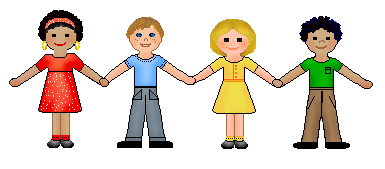EC-MENz is a New Zealand-based national network for men in early childhood education. Every year a summit is held in different parts of the country, a get-together for men in the profession to share and acknowledge the importance of gender balance and role modelling for children during their early years.
The summit this year was held at Karaka Learning Centre in the Auckland region. The next one, will be in Queenstown in March 2018. Russell Ballantyne, the President of EC-MENz, opened the summit with a short address and presented the Adam Buckingham Award to Sarah Alexander of ChildForum as a recognition of her continuing support towards the need for more men in early childhood education. It was also brought to our attention that Sarah had highlighted the fact that around 2% of teaching staff were men and that she wanted the Government to introduce policy to attract more men into the profession. The response from the Ministry was that, "It has been confirmed by the Human Rights Commission that we cannot discriminate through affirmative action or by providing scholarships on the basis of gender, because men are not a disadvantaged group" (Source: Laura Dooney 2016, Stuff Education article). Apparently, it was discovered later that the Ministry had not confirmed this matter with the Human Rights Commission at all!
A forum was held to discuss strategies at the work place to help tamariki settle down, tidy up, and manage behaviour. Participants offered a number of suggestions that included singing, negotiation, modelling appropriate behaviour and offering a sense of responsibility. Other suggestions included the importance of predictable routine, yoga sessions, storytelling, and, especially for children on the autistic spectrum, puppets as a prop. The conclusion was that most importantly there must be an element of humour and playfulness.
Before the next session Robin Christie of Childspace enlightened us on how to make a tree with six sheets of newspaper. This was an interesting session as all of us attempted to create these paper trees. I’m sure it will be great making these alongside children in the work place. Robin’s energy and laughter made this short workshop fun, which highlighted the conclusion of the previous forum to suggest that there must be humour and playfulness in activities with tamariki.
The next session was held by two international speakers who were visiting Auckland to attend the World Forum. Ron Blatz from Winnipeg, Canada, and Jerry Parr from Houston, Texas. Ron presented Russell with a woven pendant made by a native American Indian. This pendant had a bear claw, which symbolised courage, strength, and leadership. He opened the address by stating that gender balance was good for children in early childhood settings. His observation was that male staff are involved in playfulness and like to have fun, whereas female staff are more involved with relationships with children. Ron also said that at his early learning centre in Winnipeg he employed young and older staff, both male and female, to offer that balance for children. Based on his observations over the years, Ron suggested that male role models for boys are very important.
Ron also discussed the content of a book titled ‘Essential Touch’ by Francis Carlson. She stated that children who experienced touch in their early years were less aggressive when they got older than those who had not experienced touch. Apparently Francis stated that in her studies she noticed that when males were present there was a higher level of touch through rough and tumble play, play fighting, and so on. Ron mentioned that at his centre they had a written policy that mentions the benefits of men touching children and that some children respond to men and some to women. There must be that diversity offered to children during this developmental stage.
Jerry Parr complimented EC-MENz on their effort to promote and support men in early childhood in New Zealand. Jerry spoke about his experience with children during their early years at Harvard and his work with Head Start, a program of the US government that provides early childhood education, health, nutrition, and parent involvement services to low-income children and their families. He mentioned that the programme is funded and received tremendous assistance during the Obama presidency, as he was an advocate for early childhood education.
A discussion was held around strategies to get more men into the workforce and Ron suggested targeted advertising that worked, something on the lines of, “Looking for a few good men to work in childcare. Research shows us that gender balance is important in ECE”. There was also evidence to suggest that two men in the workplace offered support to each other and he suggested that women should be invited to discussions as they are the gatekeepers for employment in the sector.
David Wright, from Karaka Learning Centre, was the next speaker and talked about how presentation and delivery to children was so important. He also emphasised the fun aspect and suggested that children will be attentive if you can make them laugh. He thought that teaching through story, puppets, sounds, and action was important in the context of delivery towards children’s learning.
The day ended with a final discussion forum on how to promote ECE in schools, how to encourage younger men into the profession, and mentor programmes. In conclusion, I really enjoyed this summit as it was quite laid back and relaxed. The sessions weren’t too hurried and intense, as they were filled with laughter and fun. From a personal perspective, the day offered me support as I met other male teachers in similar working environments. I didn’t feel alone and isolated, a feeling that can creep in sometimes when working alongside all female staff in the workplace. Gender balance is so important to role model for children and the question remains, how do we get more male teachers in ECE?
